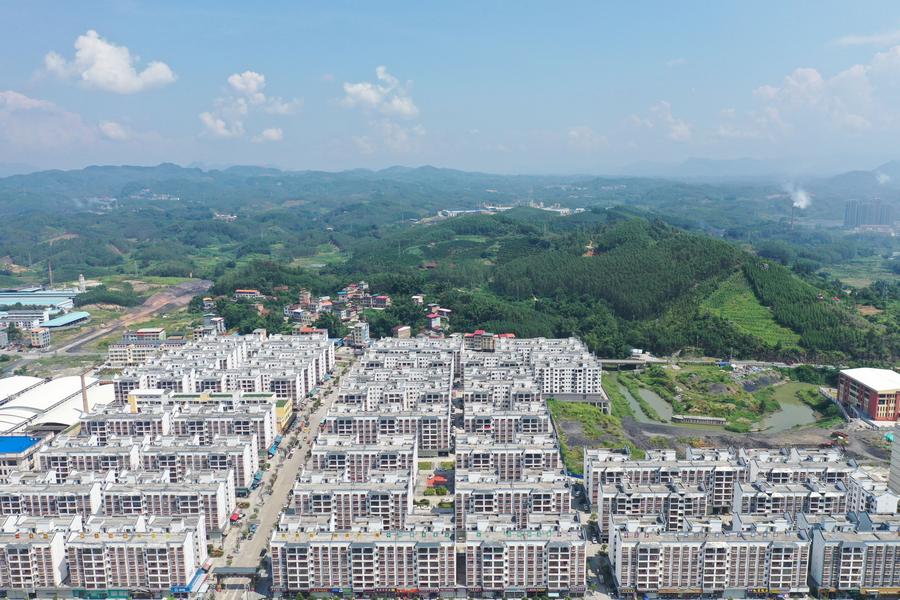
BEIJING - China's success in poverty reduction can be largely attributed to its inclusive adoption of international best practices, as well as the localization and innovative application of global poverty alleviation experience - all of which have collectively advanced global progress in poverty reduction, a think tank report said on Friday.
The report, titled Striving for a Better Life for the People: China's Practical and Theoretical Innovations in Consolidating and Expanding Poverty Alleviation Achievement, was released by Xinhua Institute, a national high-level think tank of Xinhua News Agency.
By the end of 2024, China had provided development assistance to over 160 countries and jointly advanced the Belt and Road Initiative with more than 150. Since its launch over three years ago, the Global Development Initiative has mobilized close to $20 billion in development funding, implemented over 1,100 projects, and brought tangible benefits to people in numerous countries, according to the report.
ALSO READ: SCO forum on poverty reduction, sustainable development opens
China has applied the principles of "targeted" and "demand-driven" poverty alleviation to its international poverty alleviation cooperation, launching a host of projects that are visible and tangible, and deliver rapid results. "Each of these cooperation stories demonstrates that China is an active promoter and continuous contributor to global poverty reduction," the report said.
It is noted that China is committed to providing systematic support for global poverty reduction by offering technology transfer, financial assistance, capacity building, and platform development to help developing countries strengthen their own growth momentum.
The report emphasized that guided by the vision of a global community with a shared future, China's international poverty reduction cooperation reframes developing countries not as "passive followers" in the tide of modernization, but as equal "co-creators."
READ MORE: New agriculture spurs poverty reduction in China
"Poverty reduction is more than a matter of reducing numbers, it represents an elevation to a new form of civilization," said the report, adding that as the developing nation that has lifted the largest number of people out of absolute poverty, China's experience has sparked a dialogue among civilizations on the essence of human progress.
Poverty alleviation achievements
China has made continuous efforts to consolidate and expand its poverty alleviation achievements in a five-year transitional period after the country, in February 2021, solemnly declared a complete victory in eradicating absolute poverty, a think tank report said on Friday.
The report, titled Striving for a Better Life for the People: China's Practical and Theoretical Innovations in Consolidating and Expanding Poverty Alleviation Achievement, was released by Xinhua Institute, a national high-level think tank of Xinhua News Agency.
According to the report, following its victory in the battle against poverty, China set a five-year transitional period to consolidate and expand the achievements as part of the efforts to promote rural revitalization.
In response to complex challenges such as the COVID-19 pandemic, economic headwinds and growing global development disparities, China has worked to bridge the urban-rural divide by promoting the experiences from Zhejiang's "Green Rural Revival Program" and deepening east-west collaboration to address regional imbalances and underdevelopment, making sustained efforts to narrow the gap between urban and rural areas as well as among different regions, the report noted.
READ MORE: ILO chief hails China's poverty reduction
The year 2025 marks the final year of the five-year transitional period. Throughout this period, China has firmly upheld the bottom line of preventing any large-scale relapse into poverty, it said.
This has been manifested in employment and income. For instance, as of the end of 2024, 33.05 million individuals from formerly impoverished households were engaged in employment, a figure that has remained steadily above 30 million for four consecutive years, according to the report.
In 2024, the per capita disposable income of rural residents in counties that had shaken off poverty reached 17,522 yuan (about $2,450), a 24.7 percent increase over 2021. For four consecutive years, income growth in these counties has outpaced the national average for rural residents, according to the report.
The report also summarized that the transitional framework constituted a four-pronged long-term mechanism for preventing relapse into poverty, which was reflected through the continuity of responsibilities, policies, resources and funding support, and poverty monitoring.
"As a pivotal institutional arrangement for transitioning from the eradication of absolute poverty to the pursuit of common prosperity, China's five-year transitional period established a comprehensive mechanism for monitoring and preventing a return to poverty," it added.


